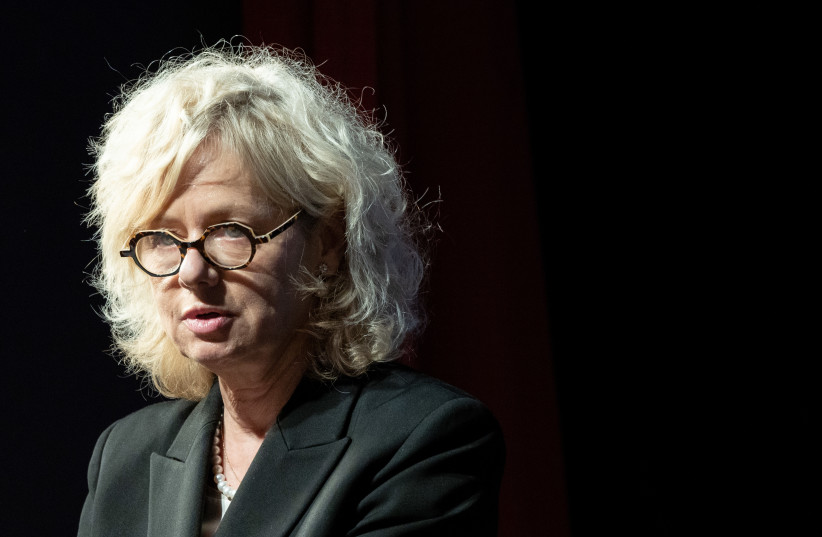The government voted on Sunday to approve the appointment of former High Court justice and attorney-general Menachem “Meni” Mazuz as head of the advisory committee responsible for appointing senior officials to government positions, despite protests from opposition parties and some members of the coalition.
The Advisory Committee for the Appointment of Senior Civil Service Officials is responsible for vetting candidates for seven key positions: IDF chief of staff, Israel Police commissioner, Mossad chief, Shin Bet (Israel Security Agency) chief, Israel Prison Service head, and Bank of Israel governor and deputy governor.
The committee also recommends whether to approve the appointments, and while not binding, they are usually given weight in the government’s decision. The committee is made up of a retired High Court justice, Civil Service Commissioner Daniel Hershkowitz, and two other public representatives, one of whom currently is former Israel Securities Authority head and law professor (emeritus) Talia Einhorn.
The appointment is necessary in order for the committee to vet Defense Minister Benny Gantz’s choice for the next chief of staff. Attorney-General Gali Baharav-Miara allowed Gantz to go ahead with the appointment, even though caretaker governments in election periods are generally not allowed to make major appointments. Baharav-Miara made the decision after receiving a classified briefing from the Defense Ministry’s chief legal adviser, who convinced her that special circumstances necessitated a smooth transition.
Politicians on the Right protested the A-G’s decision to allow the chief of staff appointment, arguing that there could still be a smooth transition if current Chief of Staff Aviv Kohavi’s tenure would be extended for a few months. The upcoming election is on November 1, and it usually takes weeks for a government to be sworn in, so the process of choosing the next army chief would extend beyond Kohavi’s current retirement date of December 31.

Baharav-Miara also ruled the government could appoint a new chief of the Advisory Committee. Politicians from the opposition and even in the coalition protested this decision on the grounds that this appointment, which is valid for eight years, falls within the decisions that are not acceptable during an election period.
Some politicians on the Right also claimed that Mazuz has a left-wing bias and is not impartial. Mazuz served as attorney-general from 2004-2010, and as a High Court justice from 2014-2021. He was considered a staunchly liberal judge and irked the Right on a number of issues. The most well-known, perhaps, was his consistent opposition to Israel’s policy of destroying the homes of Palestinian terrorists from the West Bank who carried out attacks against Israelis.
Interior Minister and leader of the Zionist Spirit Party Ayelet Shaked asked Alternate Prime Minister Naftali Bennett to use his veto power over which topics can be voted on in the government. But Bennett declined, and the vote passed. Bennett based his decision on the importance of appointing the new chief of staff.
"It is irresponsible not to appoint a chief of staff while Israel is in a sensitive security situation"
Alternate Prime Minister Naftali Bennett
“It is irresponsible not to appoint a chief of staff while Israel is in a sensitive security situation,” Bennett said of his refusal to veto Mazuz’s appointment. “Hezbollah and [the natural gas rig] Karish, the war between the wars in Syria, Operation Breaking Dawn in Gaza. We are entering an election cycle and do not know how long it will last. Security necessities must be placed above any politics.”
The two other candidates for chief of staff are Maj.-Gen. Herzi Halevi and Maj.-Gen. Eyal Zamir. Halevi is considered Gantz’s preferred choice, while Netanyahu reportedly prefers Zamir.
“An appointment made in immoral fashion, of a post-Zionist judge who opposes destroying houses of terrorists, to be responsible for appointments and senior positions, is an unparalleled disgrace and a death blow to the Zionist vision that aspires to establish in Israel a model society and not a society corrupt and elitist,” said the right-wing NGO Im Tirzu. “Naftali Bennett, Ayelet Shaked, Matan Kahana, Abir Kara, Yoaz Hendel, Gideon Sa’ar – shame on you! The nation of Israel will remember this.”
Opposition leader Benjamin Netanyahu did not voice his opinion.
Since the initiation of the Advisory Committee for the Appointment of Senior Civil Service Officials in 1997, the body had made 45 positive recommendations out of the 46 appointments brought before it to consider, according to Dr. Assaf Shapira of the Israel Democracy Institute. Out of the 45 positive recommendations, 40 were then approved by the government.
Empirical studies have found a strong correlation between professional, non-political appointments and high effectiveness in public service, according to Shapira.
